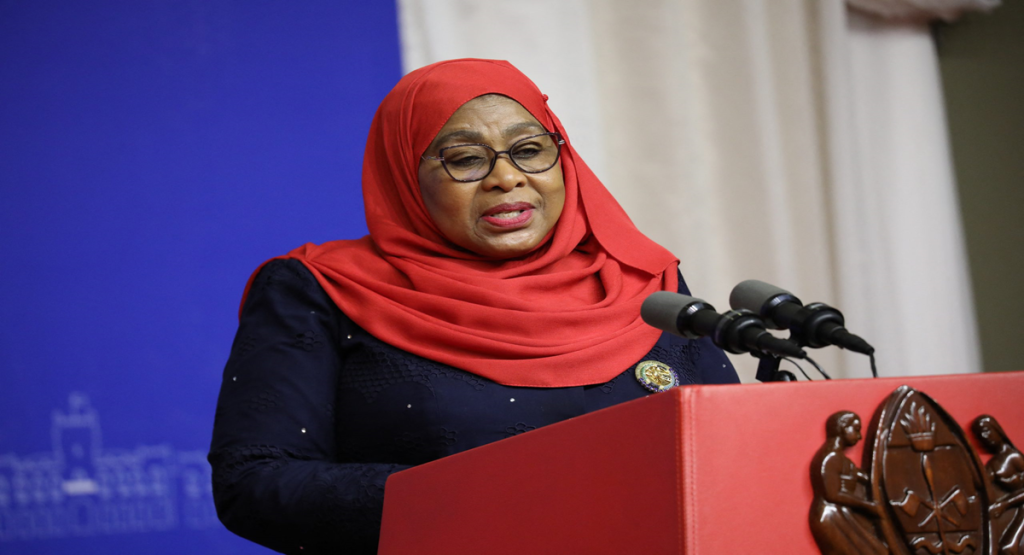One of Tanzania’s leading opposition figures, Freeman Mbowe, was arrested by police on Friday, just days before the local elections. His party, Chadema, announced the detention on X.
Earlier this week, Chadema had raised concerns about the disqualification of many of its candidates in the upcoming November 27 polls, accusing authorities of unfairly blocking their participation in local elections across the country.
According to Chadema’s Director of Communication and Foreign Affairs, John Mrema, Mbowe was arrested on November 22, 2024, when a police force ambushed a convoy in Halungu Forest, Mbozi District. Mrema stated that Mbowe, along with other Chadema leaders, was stopped at a police roadblock where officers forcibly entered their vehicle, assaulted those inside, and arrested them.
Mrema added that the police has not revealed their whereabouts or the reasons for their detention,” adding that the party is still in the dark about where the leaders are being held and is calling for their immediate release.

These local elections are seen as a key indicator of the political climate ahead of Tanzania’s presidential election in October 2025. The vote will also be the first major electoral test for President Samia Suluhu Hassan, who took office in 2021 following the unexpected death of her predecessor, John Magufuli.
While President Suluhu initially earned praise for easing restrictions on opposition parties and the media, human rights organizations and Western governments have voiced concerns over a resurgence in political repression, including the arrest of Chadema members, disappearances, and violence against opposition figures.
Before his arrest, Mbowe had been prevented by police from addressing supporters at a rally in the southern town of Mlowo.
Since taking over as chairman of the party in 2004, Mbowe has built a political machinery that threatens the supremacy of the ruling party, Chama Cha Mapinduzi. The ruling party, which grew out of the independence party Tanzania African National Union, has dominated politics in the east African nation since independence in 1961.
Mbowe has developed a political network that challenges the dominance of the ruling party, Chama Cha Mapinduzi since he became the chairman in 2004. This party, which originated from the Tanzania African National Union (TANU) formed during the country’s fight for independence, has held a tight grip on Tanzanian politics since the nation’s independence in 1961.
One of Tanzania’s leading opposition figures, Freeman Mbowe, was arrested by police on Friday, just days before the local elections. His party, Chadema, announced the detention on X.
Earlier this week, Chadema had raised concerns about the disqualification of many of its candidates in the upcoming November 27 polls, accusing authorities of unfairly blocking their participation in local elections across the country.
According to Chadema’s Director of Communication and Foreign Affairs, John Mrema, Mbowe was arrested on November 22, 2024, when a police force ambushed a convoy in Halungu Forest, Mbozi District. Mrema stated that Mbowe, along with other Chadema leaders, was stopped at a police roadblock where officers forcibly entered their vehicle, assaulted those inside, and arrested them.
Mrema added that the police has not revealed their whereabouts or the reasons for their detention,” adding that the party is still in the dark about where the leaders are being held and is calling for their immediate release.
These local elections are seen as a key indicator of the political climate ahead of Tanzania’s presidential election in October 2025. The vote will also be the first major electoral test for President Samia Suluhu Hassan, who took office in 2021 following the unexpected death of her predecessor, John Magufuli.
While President Suluhu initially earned praise for easing restrictions on opposition parties and the media, human rights organizations and Western governments have voiced concerns over a resurgence in political repression, including the arrest of Chadema members, disappearances, and violence against opposition figures.
Before his arrest, Mbowe had been prevented by police from addressing supporters at a rally in the southern town of Mlowo.
Since taking over as chairman of the party in 2004, Mbowe has built a political machinery that threatens the supremacy of the ruling party, Chama Cha Mapinduzi. The ruling party, which grew out of the independence party Tanzania African National Union, has dominated politics in the east African nation since independence in 1961.
Mbowe has developed a political network that challenges the dominance of the ruling party, Chama Cha Mapinduzi since he became the chairman in 2004. This party, which originated from the Tanzania African National Union (TANU) formed during the country’s fight for independence, has held a tight grip on Tanzanian politics since the nation’s independence in 1961.


